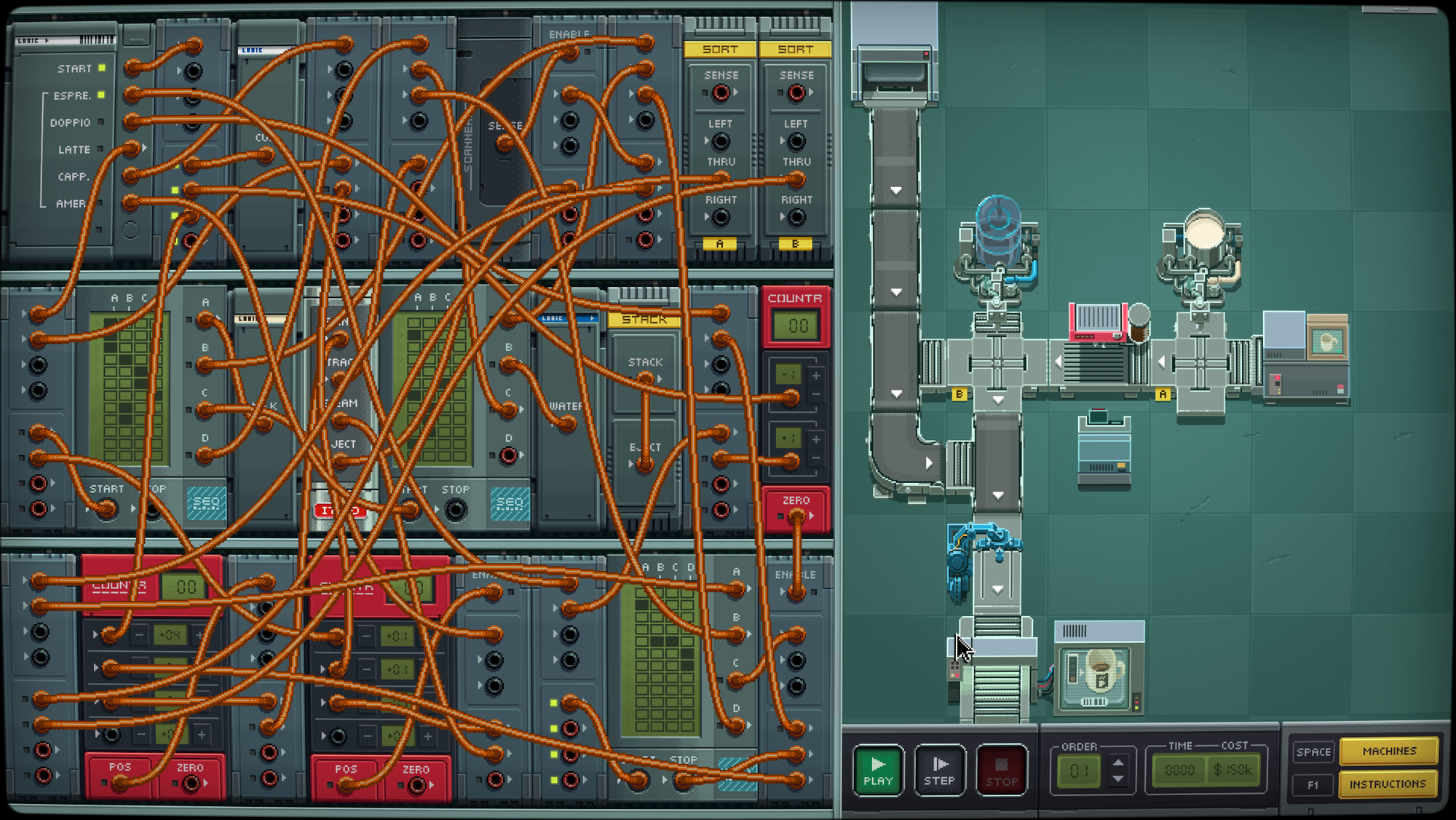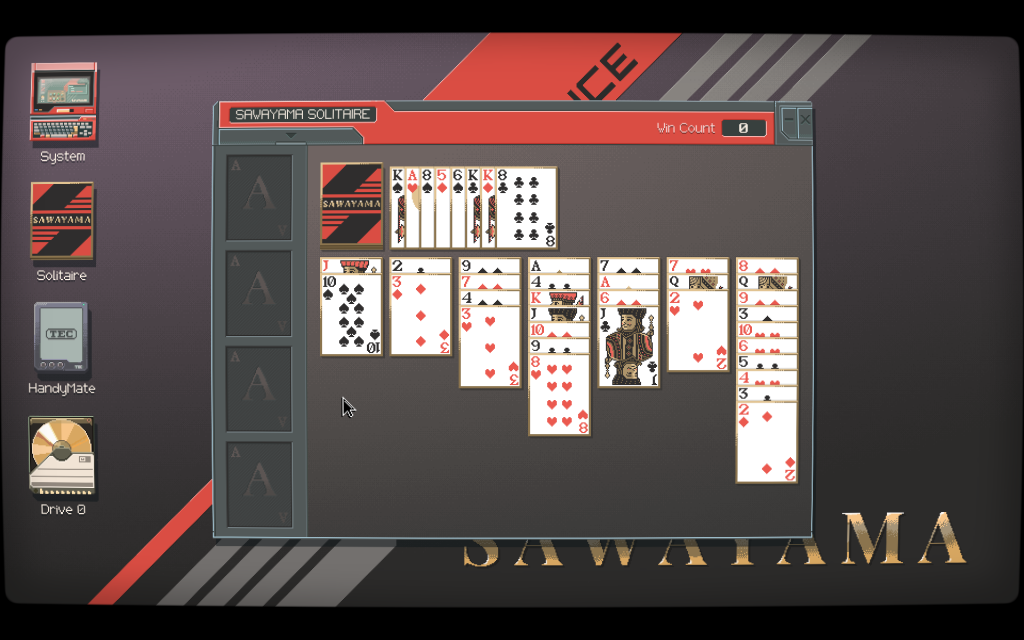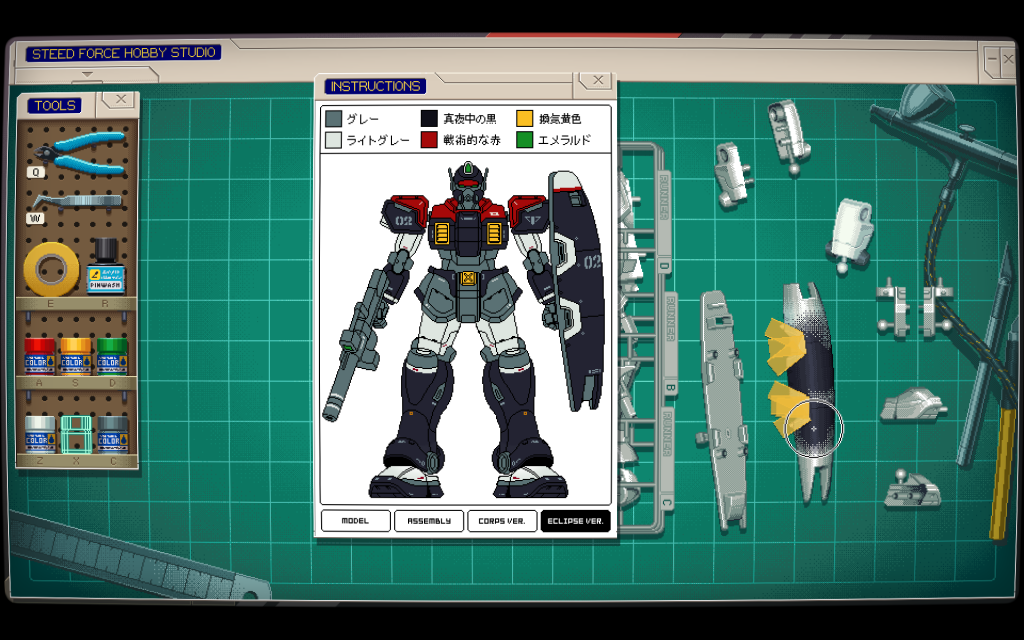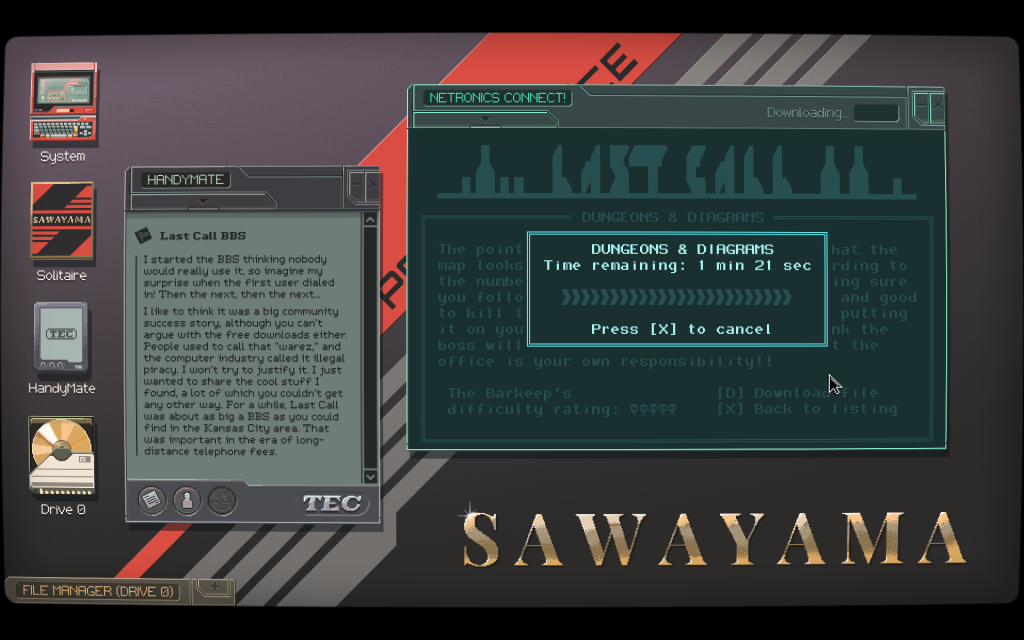
Many of the games on this list so far have leveraged nostalgic art styles and ideas as a way to evoke certain feelings; Last Call BBS is the first on my list that tries to communicate someone else’s nostalgia to a hypothetical person who may not be old enough (or connected to the right subcultures) to experience it themselves.
Last Call BBS is an anthology collection of 8 small games wrapped in a fictional retro computer system UI. Its collected games are each smaller than they typical releases from developer Zachtronics, but the collection itself provides quite a lot to play around with and is tied together as a love letter to the kinds of connections that are possible via the internet.

Crucially, Last Call BBS is also intended to be the final release from Zachtronics before the eponymous Zach Barth, its founder and creative director, leaves the game development world and focus on teaching high school computer science. In many ways, Last Call BBS is a fond farewell letter from a studio that’s built an impressive legacy in barely more than a decade.
Games Are For Play
The metafiction surrounding Last Call BBS explains that all of the included games are loaded onto an old Sawayama Z5 Powerlance, a fictional piece of retro computer hardware that is being handed down to the player by an older friend. The previous owner left a series of brief text notes (viewable in a notepad program) that explain the history and context behind the device itself and each of the various games that can be installed.
Using a mountain of aesthetic flourishes, Last Call BBS delivers a game that spans a wide gamut of art and writing styles while sticking to the low-res pixel aesthetics that mark the era it situates itself within. Each title will unlock a series of notes as players progress through it, providing insight about the fictional developer who built the game, what their story was, and why they made what they made.
One of the most poignant ones is a program called Steed Force Hobby Studio, a mecha model-building simulator that has no particular goal or scorekeeping. It’s just a little sandbox that has a bunch of tools for punching out what amounts to Gunpla model parts, painting them, assembling them, and adorning them with stickers. It’s meant to evoke the relaxing and meditative experience of assembling a model kit, fiddling with small parts, and carefully applying tape to allow for clean painted lines.

The included notes for Steed Force Hobby Studio describe its developer as a person who grew up watching an anime that he loved and wanted to build kits together with his son, but found importing them to be far too expensive and inconvenient. So he just wrote a little program to simulate them so he could share his geeky hobby with his son. It doesn’t need a win condition or a sequence of unlockable sets or anything like that. It’s just a charming little toy.
Engineering Is For Everyone
Last Call BBS also features a game called 20th Century Food Court, a puzzle game about building automated assembly lines for various foods, packaged in a goofy retro-futuristic conceit about serving 20th century foods to a post-scarcity civilization that has no need for typical organic food. Each stage begins with a description of a cuisine that sounds as if its written by an alien, and ends in a collection of food reviews from strange future people who don’t understand what a hamburger is supposed to be.
The humor is very charming, but the puzzles becomes difficult fairly quickly. It’s the game that’s most reminiscent of the general out put of Zachtronics games, beginning with the 2011 release of SpaceChem. Each solution is met with a graph comparing your solution’s efficiency to those of other players online, a signature feature of Zachtronics titles. And while the challenge can be grueling, the game feels fundamentally meant to be solved and meant to bring a sense of satisfaction to those who solve its puzzles.
It may be the case that people who don’t have experience or interest in programming won’t find any enjoyment in this sort of experience, but 20th Century Food Court is inviting you to give it a shot. Despite the challenges presented in its later levels and the competitive nature of its solution leaderboards, it never feels like it’s interested in gatekeeping the space. And because it’s an anthology, Last Call BBS always has something else to offer to recapture your interest.

More importantly, Last Call BBS is celebratory of an era of the internet with broad possibilities, where hobbyist programmers could share their copyright-infringing Gunpla kit building games and small studios could create strange and commercially questionable titles simply because it was what they felt like making. It’s a rose-colored vision of this era, to be sure, but the way it celebrates individual expression and the ability to share creative work with interested strangers reminds us of everything that the digital world can still be, and what we can attempt to win back when we build real communities online.
Conclusion
It’s hard to explain how much joy it brings me to see the way that Last Call BBS delivers its metanarrative. It’s filled with kindness, enthusiasm, and a celebration of the creative and expressive possibilities that programmers found in the early days of the internet. It’s a potent distillation of everything good about geekdom, about the sincere pleasure of sharing something niche and special with someone who may not have known about it.
Zach Barth is an exceedingly rare kind of software developer, a programmer who seems more interested in sharing the joys of engineering and the learning process than he is in elevating his own creations. And while the video game world will certainly miss him, it’s heartening to me to hear that he’ll instead be devoting his energy to bringing that joy to students in his classroom.